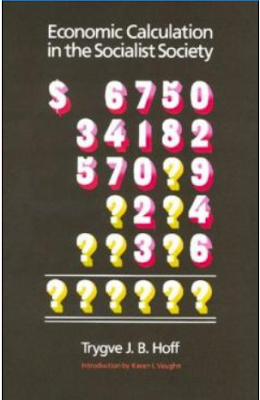In examining the need and possibility of economic calculation in the different forms of socialist communities, it is natural to start with a study of a socialist society which uses no money, i.e. one with a natural economy as it is sometimes called. The moneyless society is the great ideal of many socialists, and even as late as in February, 1932, the Finance Commissar of the Soviet Union said that the policy of his Finance Department aimed at preparing the day when money “could be relegated to the museums.” . . .
In this connection it should be remembered that in an economy of private enterprise production and distribution take place uno acto, so that distribution automatically results from the individual’s contribution to the process of production, whether it takes the form of mental or physical labour, of special capability or knowledge, or of putting land or other forms of capital at the disposal of production.
In socialist communities production and distribution will be two separate operations, nor will there necessarily be any connection between contribution and remuneration, for the central authority will decide the distribution of income. Many economists maintain that distribution is the chief problem in any socialist society; at any rate it is obviously so in one with a moneyless economy. . . .
It may be mentioned here that this question of just distribution — with which we shall not occupy ourselves when discussing the possibilities of calculation in socialist communities with a monetary economy — is particularly à propos in connection with the moneyless economy, since that is supposed to be a prerequisite for just distribution.
—Trygve J. B. Hoff, Economic Calculation in the Socialist Society, trans. M. A. Michael (London: William Hodge and Company, 1949), 32-34.

No comments:
Post a Comment